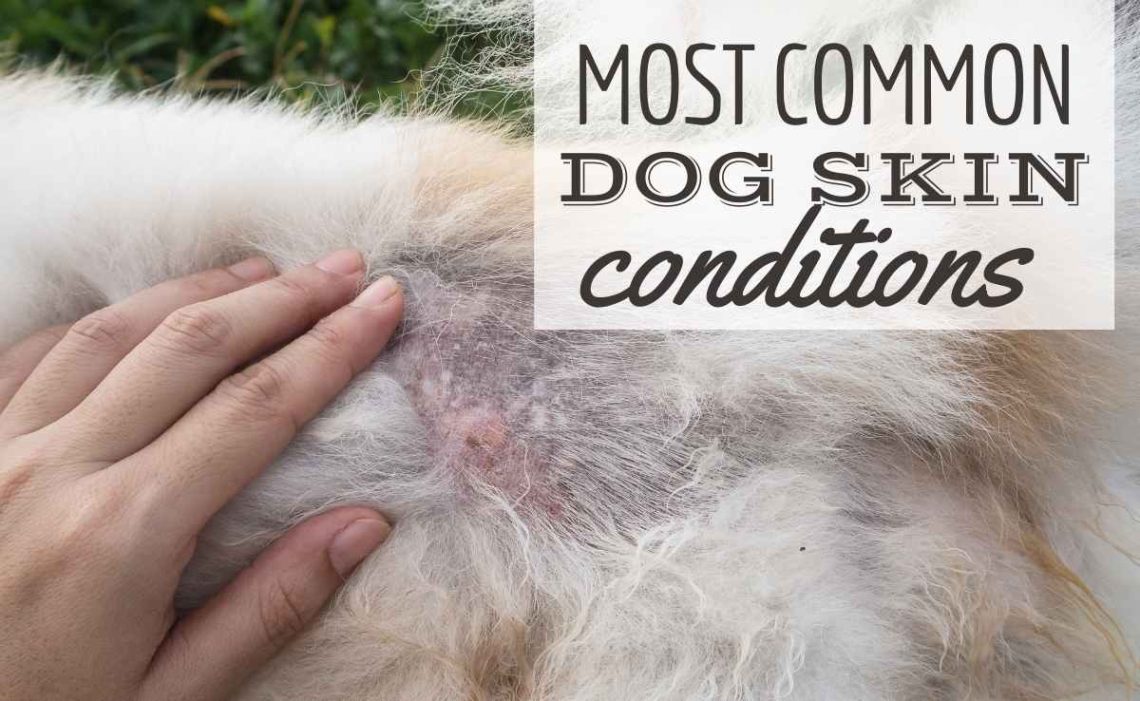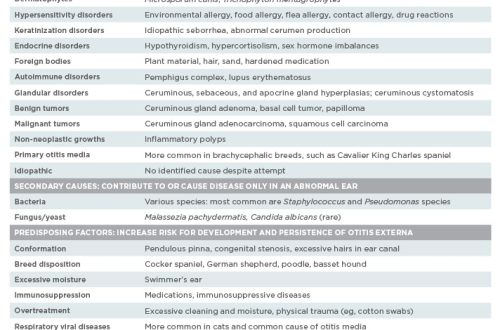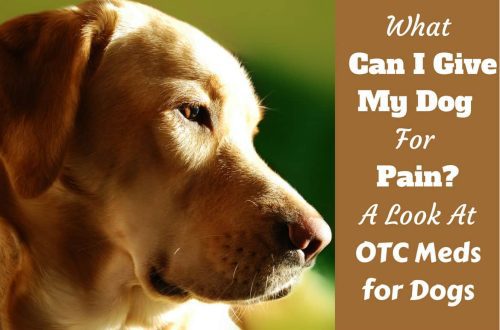
Most common skin conditions in dogs
Unfortunately, skin diseases in dogs are very common. Some allergic reactions cause incessant scratching, licking, biting and fidgeting, causing great discomfort to pets. Another consequence can be hair loss and painful skin lesions, through which, if left untreated, the infection enters the body. According to the PetMD portal, there are five main causes of skin diseases in dogs – be sure to read their description.

Contents
External Factors
Sometimes dogs have sensitivity to lawn grass – it causes irritation. The accumulation of moisture on the skin can also lead to skin damage – the formation of the so-called “hot spots”, which are most affected by dogs with thick or long hair that is prone to rolling.
Other environmental factors such as dust, mold, pollen, powdery mildew, and other inhaled allergens can also cause itching and discomfort for your pet. As a result, this will lead to the formation of painful skin lesions and hair loss. Do not forget that perfumes and tobacco smoke can also cause hypersensitivity in a dog.
alimentary allergy
Food allergies in dogs are extremely rare, usually caused by proteins found in beef, pork, lamb, chicken, eggs, and fish, as well as plant-based proteins derived from wheat. Beef, dairy products and wheat are the most common health problems for animals.
The main symptoms of a food allergy include skin irritation and excessive scratching, but digestive problems such as vomiting and diarrhea can also occur. No matter what signs of allergy you notice, it is best to contact your veterinarian right away.
Parasitic Allergy
Dogs can have an allergic reaction to flea bites (essentially an immune response to the flea’s saliva) called parasitic dermatitis. It manifests itself in the form of increased itching, inflammation and hair loss.
Although fleas are the most common cause of parasitic dermatitis in dogs, tick bites can also cause an allergic reaction in the dog. It is difficult to determine the exact cause of parasitic dermatitis in dogs, because the skin reaction is observed in them in response to the bites of various pathogens, such as scabies mites. If treating your pet for ectoparasites does not solve the problem, contact your veterinarian to rule out tick infestation.
Infectious dermatitis
Dogs can develop a disease such as infectious dermatitis caused by bacteria, fungi and viruses. One of the most common causes of infectious dermatitis is dermatophyte fungi, better known as ringworm. Another causative agent of infectious dermatitis is the yeast fungus Malassezia (Malassezia pachydermatis), which is activated against the background of other diseases. For the treatment of the fungal form of dermatitis, in addition to the drugs used to treat the underlying disease, antibiotics or antifungal agents are prescribed.
How to help an animal
The easiest way to cure parasitic dermatitis. If you notice that parasites are the cause of the puppy’s itching, treat the house and other animals with an ectoparasite remedy and use prophylactic drugs in the future. Other types of allergies and pathogens are not easy to identify on your own. Therefore, if you got rid of fleas, and the animal still suffers from incessant itching, skin irritation and hair loss, you should contact your veterinarian. When you go to the clinic, your dog will likely have a series of blood tests, skin samples taken, and other laboratory tests to determine the true cause of the disease.
It may be a matter of trial and error to narrow down the possible causes of itching in a dog, but you need to be patient. Your veterinarian will advise you to switch to a dietary food to reduce your pet’s itching. Once an irritant or allergen has been identified, it must be removed from your pet’s environment or food. If this is not possible for health reasons, consider using topical anti-inflammatory or oral medications recommended by your veterinarian.
For severe skin lesions and signs of infection, antibiotics should be used. Another veterinarian will probably advise you to use special shampoos and rinses that help to slightly alleviate the condition of the pet.
It is impossible to calmly watch the suffering of your pet. The first thing you can do to help your four-legged friend is to identify the causes of the disease and contact a veterinarian.





